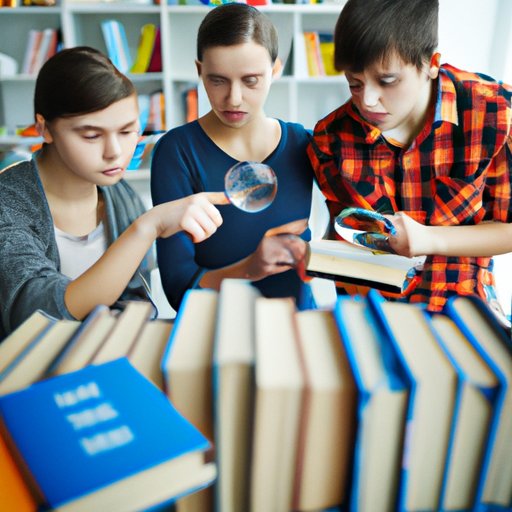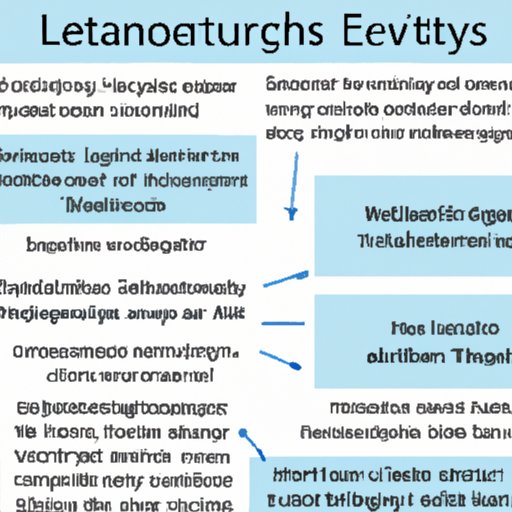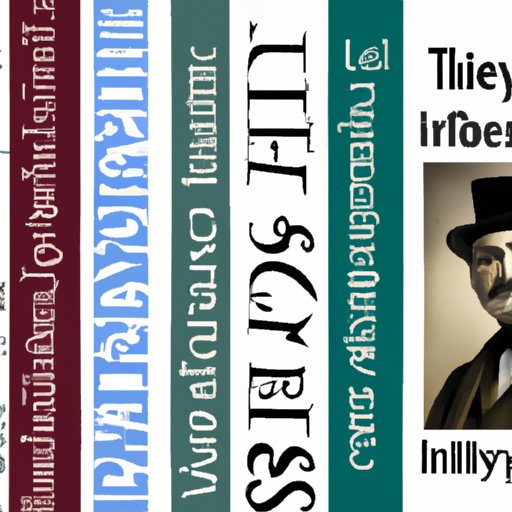Introduction
Literature is a form of art that has been around for thousands of years. It is a way for people to express themselves through written or spoken words, telling stories and conveying messages. But what is considered literature? This guide will explore the definition of literature, its historical development, different genres, literary techniques, and the role of technology in modern literature.
Historical Overview of Literature
The history of literature can be traced back to ancient times. The earliest known writings date back to 3200 BC in Sumer, Mesopotamia. These writings were mostly religious texts and hymns, but they are considered the first form of literature. As time went on, other forms of literature developed, such as epic poems, plays, and novels.
In Ancient Greece and Rome, literature flourished. Poets such as Homer, Sappho, and Virgil wrote epic poems about gods and heroes, while playwrights like Euripides and Sophocles wrote plays and tragedies. During the Middle Ages, literature was mainly religious in nature, with writers such as Dante and Chaucer creating works of great importance. In the Renaissance period, literature continued to evolve, with writers such as William Shakespeare and Miguel de Cervantes creating masterpieces that still resonate today.

Examining Different Genres of Literature
Literature is divided into different genres, each with its own set of characteristics and conventions. The three main genres of literature are poetry, prose, and drama.
Poetry
Poetry is a type of literature that uses rhythm and imagery to express emotions and ideas. It often follows a specific structure or rhyme scheme, and typically uses figurative language such as metaphors and similes. Classic examples of poetry include works by William Wordsworth, Robert Frost, and Emily Dickinson.
Prose
Prose is a type of literature that consists of sentences and paragraphs. It is the most common form of writing, used in fiction and non-fiction books, essays, short stories, and newspaper articles. Prose can be narrative or descriptive, and it often follows a specific structure or plot. Famous examples of prose include works by Jane Austen, Mark Twain, and Ernest Hemingway.
Drama
Drama is a type of literature that is performed on stage. It usually tells a story through dialogue and action, and often features characters who struggle with difficult situations. Drama often follows a specific structure and includes elements such as soliloquies and monologues. Examples of dramatic works include plays by William Shakespeare, Henrik Ibsen, and Arthur Miller.

Literary Devices and Techniques Explained
In addition to different genres of literature, there are also a variety of literary devices and techniques used in writing. These are tools used to convey meaning, create atmosphere, and add depth to a work. Common literary devices and techniques include metaphor, alliteration, irony, and allegory.
Metaphor
A metaphor is a figure of speech that compares two unlike things without using the words “like” or “as”. For example, “the sun is a golden coin in the sky” is a metaphor because it compares the sun to a coin without using those words. Metaphors are often used to make an idea more vivid and memorable.
Alliteration
Alliteration is the repetition of the same sounds at the beginning of words. For example, “She sells seashells by the seashore” is an example of alliteration because the words “she”, “sells”, and “seashells” all start with the same sound. Alliteration is often used to create a poetic effect.
Irony
Irony is when something happens that is contrary to what is expected. For example, if someone says “That was easy!” after completing a difficult task, this would be ironic because the result was not what was expected. Irony is often used to create humorous or dramatic effects.

Famous Literary Works and their Impact on Society
Throughout history, there have been many famous works of literature that have had a lasting impact on society. These works have shaped the way we think, feel, and view the world. Here are some of the most influential works of literature and their impact on society.
William Shakespeare’s Plays
William Shakespeare is widely regarded as the greatest playwright of all time. His plays, such as Romeo and Juliet, Hamlet, and Macbeth, have had a profound influence on theatre, literature, and culture. His works continue to be performed and studied to this day.
Jane Austen’s Novels
Jane Austen is one of the most beloved authors in literature. Her novels, such as Pride and Prejudice, Sense and Sensibility, and Emma, are renowned for their wit and insight into human nature. Her works have long been praised for their exploration of gender roles and social class.
Mark Twain’s Short Stories
Mark Twain is one of the most recognizable authors in American literature. His short stories, such as The Adventures of Tom Sawyer and The Adventures of Huckleberry Finn, have had a lasting impact on the American psyche. His works are often praised for their humor, satire, and exploration of moral issues.
The Role of Technology in Modern Literature
Technology has had a huge impact on literature in recent years. From e-books and online publishing to social media platforms and audio books, technology has changed the way we consume literature. Here are some of the ways technology is influencing modern literature.
E-books and Online Publishing
E-books and online publishing have made it easier than ever for writers to self-publish their work. This has allowed independent authors to reach a wider audience and given readers access to a greater selection of books. E-books are also more affordable and portable than traditional print books.
Social Media Platforms
Social media platforms such as Twitter, Instagram, and Facebook have become important tools for authors to promote their work and connect with their fans. Authors can use social media to share excerpts from their work, post updates about their writing process, and engage with readers.
Audio Books
Audio books are becoming increasingly popular, as they allow listeners to enjoy literature on the go. Audio books are available in a variety of formats, including CDs, digital downloads, and streaming services. They are especially useful for people who don’t have the time to read physical books.
Conclusion
Literature is a form of art that has been around for centuries. It is a way for people to express themselves and tell stories. While there is no single definition of literature, it is generally accepted to include poetry, prose, and drama. Additionally, literary devices and techniques are often used to convey meaning and deepen a work’s impact. Famous works of literature such as William Shakespeare’s plays and Jane Austen’s novels have had a lasting influence on society. Finally, technology has changed the way we consume literature, from e-books and online publishing to social media platforms and audio books.
(Note: Is this article not meeting your expectations? Do you have knowledge or insights to share? Unlock new opportunities and expand your reach by joining our authors team. Click Registration to join us and share your expertise with our readers.)
